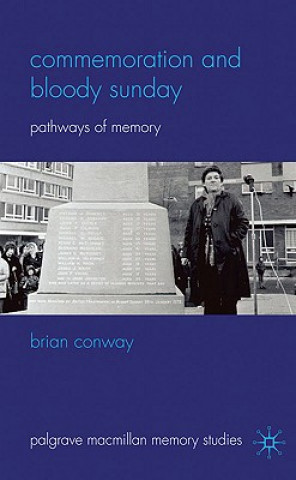
Delivery
Shopping guide





Doesn't suit? No problem! You can return within 30 days
 Gift voucher
any value
Gift voucher
any value
You won't go wrong with a gift voucher. The gift recipient can choose anything from our offer.
Commemoration and Bloody Sunday
 English
English
 161 b
161 b
 Delivery to Austria
Delivery to Austria
30-day return policy
You might also be interested in


Immediately after Bloody Sunday (1972) newspaper coverage employed the metaphor of the Holocaust to interpret the shooting dead of thirteen civilians while peacefully marching against internment in Derry, Northern Ireland. This early global idiom virtually disappeared in the 1970s and 1980s and made a surprising comeback in the 1990s. In Commemoration and Bloody Sunday, Brian Conway uses the case of Bloody Sunday as a window onto the way sociologists theorize about the 'making' of memory and changing interpretations of the past. Focusing on the role of agency, contexts and temporality, and drawing on original empirical data from interviews, archival research and participant observation, he examines early interpretative struggles between Irish republicans and civil rights activists over the meaning of the event and how this was de-politicized in the 1990s in the quest for power to define the truth of what happened. Although the case that Conway examines has special relevance to our understanding of difficult pasts in Northern Irish society, it also has application to broader debates in collective memory. The author highlights the layered nature of memory work; discursive battles over ownership of the past; the changeable nature of embodied remembrance and its relation to textual memory; the relationship between local contexts and international conditions in shaping commemorative strategies; and the use of different genres in remembering the past.
About the book
 English
English


 Contact
Contact How to shop
How to shop

























